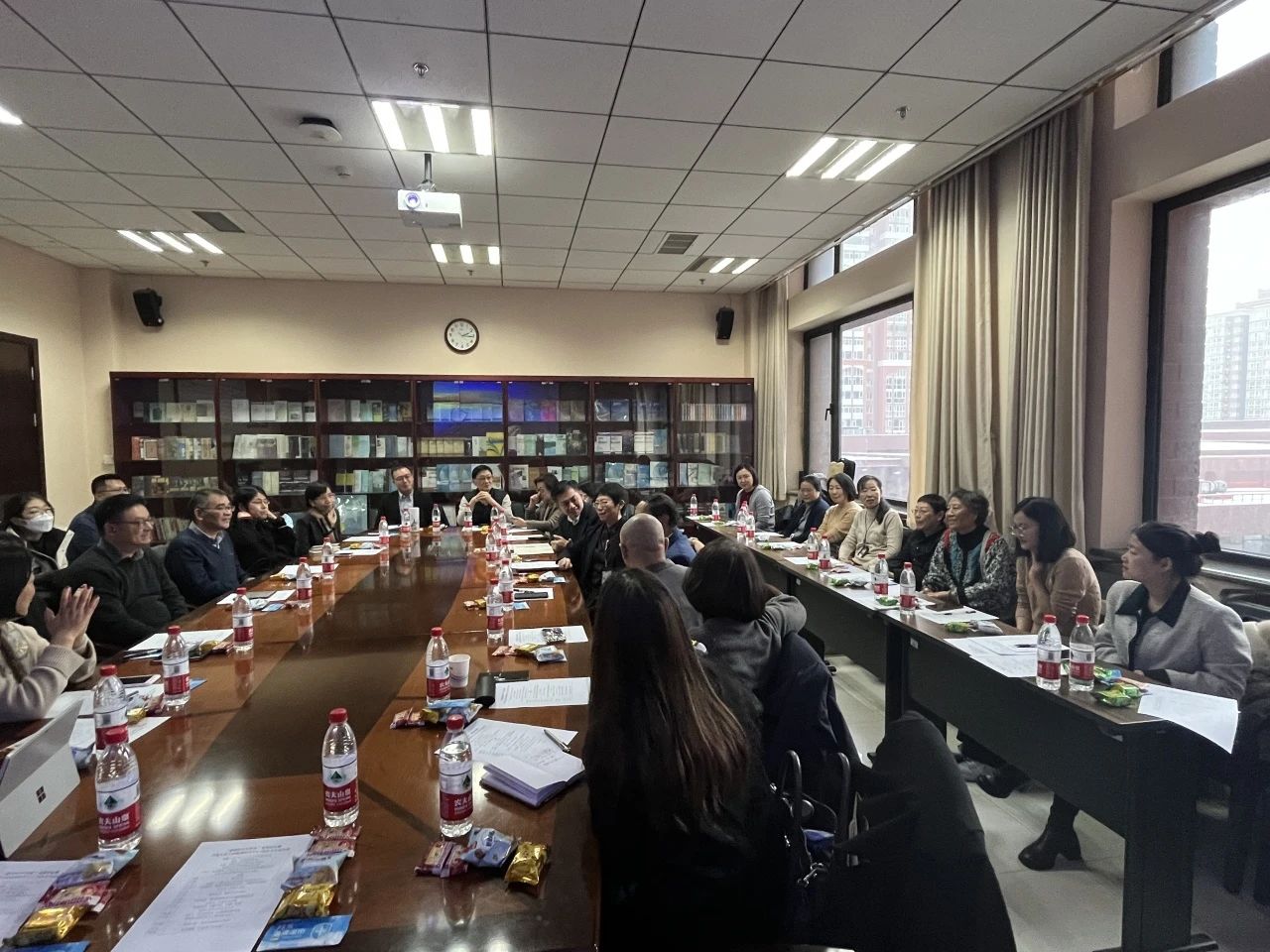The Research Center for German Studies Holds the High-end Forum on “Germany’s Historic Turning Point” and the 2023 Annual Conference of the Research Center for German Studies
DATE: 2023-12-21
On the afternoon of December 13th, 2023, the High-end Forum on “Germany’s Historic Turning Point” and the 2023 Annual Conference of the Research Center for German Studies of Renmin University of China was held at Room 501, Mingde International Building. The forum was jointly organized by the Research Center for German Studies of RUC and the Institute of Area and Country Studies of RUC. Li Zhenyun, Secretary of the Party Committee of the School of Foreign Languages, attended the meeting and delivered a speech. The forum was presided over by Professor Zhang Yi, director of the Research Center for German Studies and the Department of German.

Li Zhenyun gave a warm welcome to all the guests, experts and professors who participated in this forum, and introduced research achievements of the Research Center for German Studies over the past five years. He said that it is important to carry out research on the relevant aspects of Germany and promote exchanges of civilizations between China and Germany. Amid the current complex and volatile international situation, China-Germany relations are facing new changes and challenges. Especially since German Chancellor Olaf Scholz proclaimed a Zeitenwende (a historic turning point) for Germany following the Russia-Ukraine conflict, the German government has significantly shifted and adjusted its domestic and foreign policy, including its policy toward China, and China-Germany relations have changed markedly. The forum, with the theme “Germany’s Historic Turning Point”, invited experts and scholars to discuss and exchange ideas, which has great significance for the exploration of the German government’s policy shift, of its influence on China-Germany relations and even China-EU relations, and of the method for exchanges and mutual learning between the two civilizations.
The Germany experts in the forum delivered keynote reports on what “Germany’s Historic Turning Point” is, how it occurs, and how to deal with the consequent challenges. They emphasized that, as researchers on German studies, they should fully recognize the changes in Germany’s and other European countries’ foreign policies, their perception of China and their China policy against the background of “Germany’s Historic Turning Point”, and should actively carry out relevant research to dissolve the negative impact brought by the changes, so as to promote exchanges and mutual learning between the two civilizations.
The representative of Chinese enterprises delivered a keynote report titled “German Energy Transition and New Energy Cooperation between China and Germany”, pointing out that the core of energy transition is the transition of transportation and that the German government has thus formulated long-term goals of achieving carbon neutrality and introduced measures including subsidies for new energy vehicles. European and American markets represent both opportunities and risks for Chinese enterprises. The Chinese and German governments have placed great emphasis on green and low-carbon transformation and upgrading in the transport sector, and reached a consensus that cooperation should be strengthened in the field of energy transition.
The former library director of the China Cultural Center in Berlin introduced the background and development of overseas China Cultural Centers, detailing the four tenets (high-quality, popularity, hospitality and cooperation) and five functions (introduction and promotion of national conditions, cultural communication, exchange of ideas, teaching and training, and information services) of the centers. The director also introduced some Chinese cultural activities organized by the China Cultural Center in Berlin such as the “Happy Spring Festival” project and the “China Tourism and Culture Week”.
The experts and scholars in the meeting engaged in in-depth discussions on the traffic light coalition’s China policy and reached a consensus that China should prepare for better relations with all sectors in Germany especially with its local governments, enhance people-to-people, educational and cultural exchanges between the two countries, and promote the economy and trade, so as to strengthen communication between the two countries and their bilateral ties.
Besides, the experts held discussions on the crisis facing the development of non-common languages as subjects, and professors and heads of German departments shared their universities’ responses and expressed their opinions. It was agreed that, in the face of “German Major’s Historic Turning Point”, we need to respond to new challenges positively and boost confidence in the major.
The guests invited to the forum included professors and heads of German departments from universities including Peking University, Beijing Foreign Studies University, Beihang University, Beijing Institute of Technology, University of International Business and Economics, Beijing Language and Culture University, Beijing International Studies University, Capital Normal University, and Hebei University of Architecture, members of the GLT Advisory Board under the Ministry of Education, senior diplomats, and Germany experts. All faculty members and some graduate students of German Department of RUC and some alumni of RUC attended the forum.
